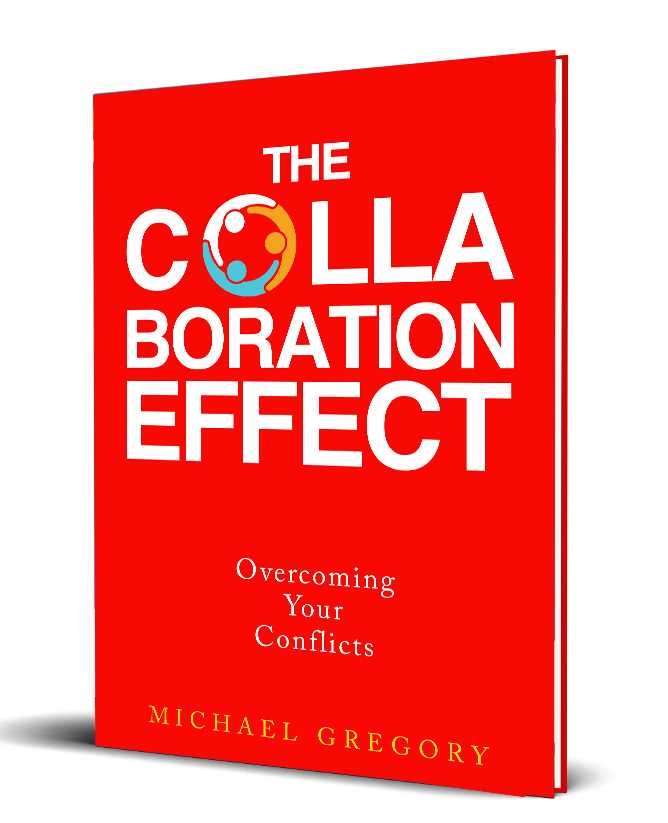
I know as a negotiator one of the most important elements towards reaching an agreement in a negotiation is to build and have trust. In order to have trust it is important to build a relationship with the other party. This is true in any negotiation, but especially with the IRS.
When I became a new manager at the IRS many years ago I attended a full day course on listening. In that course we were taught how to ask open ended questions and how to truly listen. I also learned there were ten phrases to never bring up in a conversation, because they would kill the conversation. Number one was “IRS”. Later in my career I used this very effectively.
As a territory manager with 13 to 17 states in my geographic footprint I was often traveling on my own time on evening flights. If I was tired and the person next to me asked me who I worked for and I said “The IRS” I often had a nice quiet flight. On the other hand if I wanted to speak to the person next to me I would say “I am an engineer and business valuer. I am involved in valuing domestic transactions, international intangibles and research and development in corporations.” With that introduction I often could have a very pleasant conversation with the person next to me.
Working at the IRS many individuals simply jumped right to the issue and did not really care to develop any kind of relationship. This works much of the time. We as Americans typically want to get right down to business. On the other hand those that took the time to develop a relationship could often do better. When we collaborated on the issues instead of digging in and positioning ourselves for confrontation this could generate much better results with less time on audit and typically less adjustments. Is that one of your goals? You can catch more flies with honey than vinegar as the old saying goes.
Now as a student of neuroscience and with nearly six years of experience working with the IRS from a private sector experience I can say that I have made building a relationship a very active part with my client’s before the IRS. It starts with understanding the issue, the client’s perspective, the perspective of the IRS personnel involved and doing additional research. Going on line and researching social media such as LinkedIn and Facebook, networking with others and gaining as much information regarding the other party(s) is critical. Knowing that information it is necessary to find areas of common interest and concerns to emotionally bond with the other party(s). It is critical that this be initiated from the very beginning to set the right tone and to develop an emotional trust.
There must be good two way communication. This involves listening and asking open ended questions. We are hard wired to view something new with skepticism. The term from neuroscience is “foe versus friend”. When we don’t know someone or something we initially judge them or it negatively. It takes time to move from foe to friend.
People tend to respond to others based on how they are first treated. If you take the time to interact with the other party with even a little bit of positive interaction the other party generally tends to respond correspondingly. This relates to respect and trust as well. Go out of your way to demonstrate both when working with IRS employees.
I can coach this to clients. Most get it. Some indicate they understand, but they have a very hard time trying to get past their reflection on negative past experiences. We are not shaped by our experiences, but by reflecting on them. For those that have had negative past experiences, I ask them what they can learn by reflecting on the experience and trying a positive perspective this time. That seems to help. If we provide feedback rather than feedforward that tends make it harder to move on from the historical negative event.
According to the Harvard Law School Program on Negotiation blog by Jeswald Salacuse on August 3, 2017 “Even just a few minutes of small talk can go a long way.” This was demonstrated by research by Northwestern University School of Law professor Janice Nadler. Just five minutes of small talk on the phone made a big difference.
When working with the IRS or anyone for that matter, take some time to build a relationship. If you are involved in a call with the IRS or working a live case with the IRS keep this in mind. Most don’t. Given these facts taking the time certainly can’t hurt and quite likely will help.
Michael Gregory, NSA, ASA, CVA, MBA is an international speaker, that helps organization resolve conflict and negotiate winning solutions. Mike is dedicated to making individuals, organizations, thought-leading entrepreneurs and executives more successful. Michael’s books, including The Servant Manager, How to Work with the IRS, Second Edition and his most recent book, now available in hard copy and as an eBook, Peaceful Resolutions. On point resources are available online at www.mikegreg.com and check out the blog. Contact Mike directly at mg@mikegreg.com or call (651) 633-5311.
About the author
Mike Gregory is a professional speaker, an author, and a mediator. You may contact Mike directly at mg@mikegreg.com and at (651) 633-5311. Mike has written 12 books (and co-authored two others) including his latest book, The Collaboration Effect: Overcoming Your Conflicts, and The Servant Manager, Business Valuations and the IRS, and Peaceful Resolutions that you may find helpful. [Michael Gregory, ASA, CVA, MBA, Qualified Mediator with the Minnesota Supreme Court]

